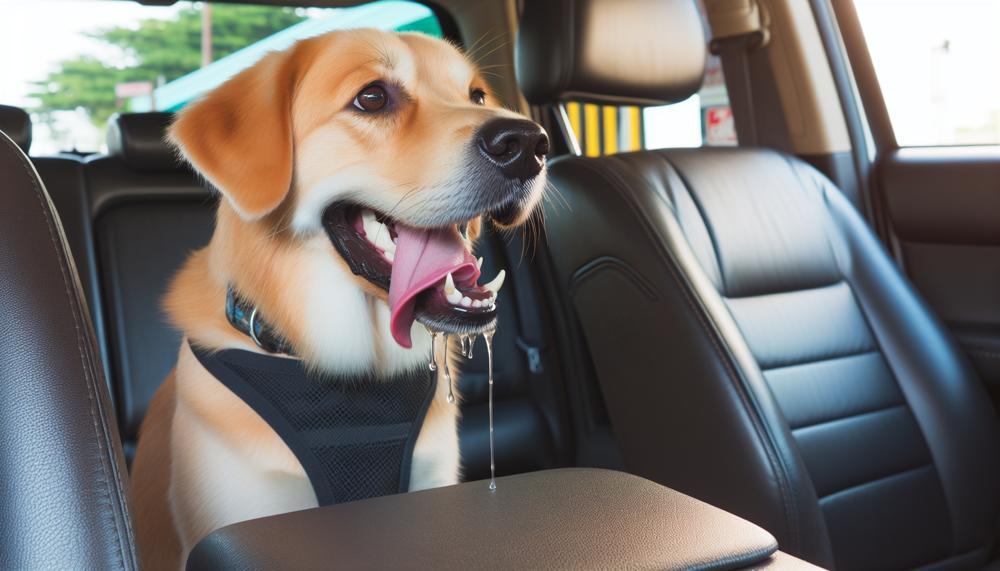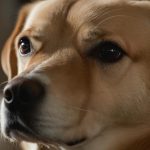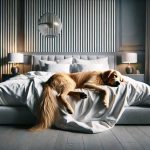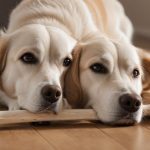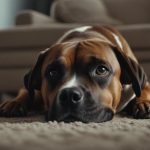Imagine this: you’re cruising down the highway with your four-legged companion by your side, enjoying the scenery and the freedom of the open road.
But then, you notice a familiar sound – the incessant dripping of saliva hitting the car floor. Yes, it’s your dog drooling again.
While we adore our furry friends, there’s no denying that their slobber can be quite bothersome, especially during car rides. But have you ever wondered why dogs drool in the car?
In this blog post, we’ll delve into the intriguing reasons behind this behavior.
So, why does my dog drool in the car?
Here are some reasons why your dog might drool in the car:
- Motion sickness: The car’s ride can cause vertigo-like feelings that lead to nausea and drooling. Drooling should stop shortly after the car stops moving.
- Heatstroke: The inside of a car can get very hot, and dogs can heat up quickly because of their thick coats. Drooling is a coping mechanism that helps with thirst.
- Anxiety: Dogs might drool when they’re anxious about car rides. Other signs of anxiety include pacing, whining, barking, and shaking.
- Gastrointestinal issues: A car ride can trigger motion sickness that can upset a dog’s stomach, causing drool that may look foam-like.
- Dental issues: Dental problems like tooth decay, periodontal disease, or oral tumors can cause excessive drooling. A dog with a mouth injury might smack their lips or hold their mouth in strange positions.
- Toxins: If your dog has ingested something poisonous or toxic, they might drool excessively, shake, vomit, or become lethargic.
So, sit back and enjoy as we unravel this common yet puzzling phenomenon – because understanding why dogs drool in the car may just make your next adventure a little less messy and a lot more enjoyable for both you and your furry co-pilot.
7 reasons why your dog drools in the car
Table of Contents
There are multiple factors that can contribute to a dog drooling in the car, ranging from motion sickness to genetics. Let’s delve deeper into each of these potential reasons.
Motion Sickness:
Similar to humans, dogs can experience motion sickness when traveling in a car. The constant movement and changes in speed can cause discomfort and nausea, resulting in excessive drooling.
If your dog is prone to motion sickness, it is best to consult with your veterinarian for advice on how to make car rides more comfortable.
Fear or Anxiety:
Some dogs may drool excessively in the car due to fear or anxiety. This could be triggered by past negative experiences or a general fear of traveling.
To help your dog overcome this, try gradually exposing them to car rides and making the experience as positive and stress-free as possible.
Heatstroke:
In hot and humid weather, dogs are susceptible to heatstroke. If you notice excessive drooling along with other symptoms like panting, weakness, or vomiting, your dog may be suffering from heatstroke.
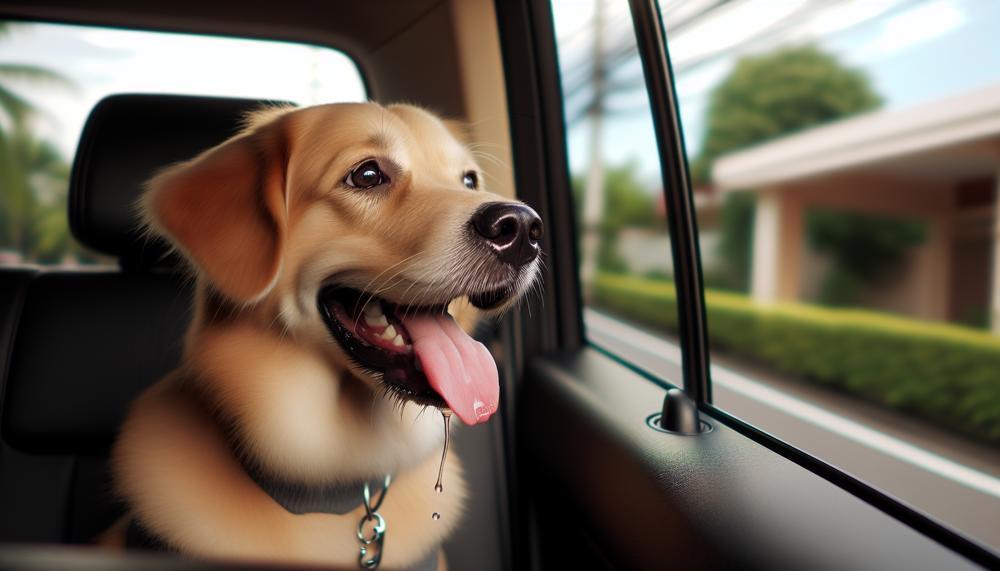
It is crucial to seek immediate veterinary care if you suspect this is the case.
Excitement:
Excitement is a natural response for dogs when going for a car ride or arriving at a new destination. This can lead to excessive drooling, but it should subside once the excitement wears off.
Thirst:
Drooling can also be a sign of thirst in dogs. Make sure to provide your pup with plenty of water before and during car rides to prevent dehydration.
Health Issues:
Excessive drooling in the car could also be a symptom of an underlying health issue such as dental problems or gastrointestinal issues. If you notice any other symptoms or if your dog’s drooling persists even after trying preventive measures, it is best to consult with a veterinarian for proper diagnosis and treatment.
Genetics:
Lastly, some dogs may drool more in the car due to their genetics. Certain breeds like Bloodhounds, St. Bernards, and Mastiffs are known for their excessive drooling due to their loose lips and jowls.
In this case, it is important to keep a towel or drool cloth handy during car rides to wipe away any excess drool.
To sum up, there are various potential reasons for a dog drooling in the car, including motion sickness, fear or anxiety, heatstroke, excitement, thirst, health issues, and genetics.
How to stop a dog from drooling in a car? 10 proven tips
There are 10 proven strategies for stopping a dog from drooling in the car:
- Avoid feeding your dog a large meal before hitting the road. This can increase the chances of them getting car sick.
- Take frequent breaks during long trips to give your dog a chance to stretch, relieve themselves, and get some fresh air.
- Never leave your dog alone in a hot car as this can lead to heatstroke and excessive drooling.
- To ensure constant ventilation, keep the windows slightly open. Just be careful not to open them too much, which can be harmful to your furry companion.
- Keep your dog busy and entertained with toys or treats during car rides to reduce anxiety and prevent excessive drooling.
- Playing soothing music or speaking calmly to your dog can also help distract them and make them feel more comfortable during car rides.
- If your dog is not used to traveling in a car, start with shorter trips and gradually increase the duration. This will help ease their anxiety and get them used to the experience.
- If your dog continues to drool excessively in the car, it’s best to consult with a veterinarian to rule out any underlying medical issues.
- For safety purposes, always secure your dog with a harness or carrier while traveling in a car.
- Make sure your dog stays hydrated during longer trips as low humidity levels in the vehicle can cause dehydration and excessive drooling.
By implementing these tips, you can effectively prevent your dog from drooling excessively in the car and make traveling a more enjoyable experience for both of you.
Conclusion
In conclusion, you may have a much better travel experience with your dog if you know why they drool during vehicle rides.
There are a number of reasons that contribute to this habit, including heredity and motion sickness. But, you may make your pet feel more at ease and lessen excessive drooling by adopting a few safety precautions and preventive measures.
If you suspect an underlying health concern or if the drooling continues, it’s recommended to check with a veterinarian. You and your four-legged co-pilot may have smoother automobile travels if you put these ten tried-and-true suggestions into practice.

